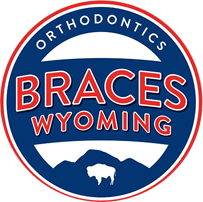Introduction
Children with special needs often require specialized healthcare, and dental care is no exception. Oral health is closely connected to overall well-being, yet children with physical, developmental, or behavioral conditions often face greater challenges when visiting the dentist. Parents may feel uncertain about how to find the right care, what treatments are safe, and how to manage anxiety or sensory sensitivities during dental visits.
This is where pediatric dentistry in Cheyenne WY plays a vital role. Pediatric dentists are specially trained to provide individualized care, using strategies and tools that make dental visits more comfortable and effective for children with unique needs.
In this guide, we will explore how pediatric dentistry supports the oral health of children with special needs, what parents should expect, and the long-term benefits of professional care.
Unique Oral Health Challenges in Special Needs Children
Children with special needs may be more prone to dental concerns due to a combination of medical, behavioral, and dietary factors. Some common challenges include:
Common Dental Concerns
- Delayed eruption of teeth
- Malocclusion (misaligned bite)
- Increased risk of cavities due to difficulty brushing
- Gum disease from limited oral hygiene routines
Medication Side Effects
Certain medications for chronic conditions can reduce saliva flow, causing dry mouth and increasing the risk of tooth decay. Others may lead to overgrowth of gum tissue, which complicates cleaning.
Sensory and Behavioral Sensitivities
Children with autism spectrum disorder (ASD), ADHD, or anxiety may find dental environments overwhelming due to sounds, lights, and unfamiliar equipment. Pediatric dentists understand these concerns and adapt care accordingly.
Specialized Training of Pediatric Dentists
Pediatric dentists receive additional training beyond dental school to work with children of all abilities. This includes:
Behavior Management Techniques
- Positive reinforcement to reduce anxiety
- “Tell-show-do” methods to explain procedures step by step
- Gentle desensitization for children sensitive to touch or sounds
Communication Strategies
Dentists adapt their communication style to suit each child’s needs. For example, they may use visual aids, social stories, or simplified language to help children understand what will happen during a visit.
Sedation Dentistry Options
In some cases, sedation may be recommended to ensure safe and stress-free treatment. Pediatric dentists in Cheyenne WY carefully evaluate whether options such as nitrous oxide (“laughing gas”) or general anesthesia are appropriate.
Creating a Kid-Friendly Dental Environment
Specialized dental offices often modify their environment to be welcoming and less intimidating for children with special needs.
Sensory-Friendly Adjustments
- Dimmed lights to reduce overstimulation
- Quiet background music to create calmness
- Weighted blankets for comfort during treatment
Modified Equipment
- Smaller dental tools designed for children
- Protective mouth props for safety
- Gentle suction devices for children with sensitivity
Preventive Pediatric Dentistry for Special Needs Children
Preventive care is the cornerstone of pediatric dentistry, especially for children who face higher risks of dental complications.
Early Intervention
First dental visits are recommended by the age of one, or within six months of the first tooth eruption. Early visits help build comfort and establish a baseline for oral health.
Preventive Treatments
- Fluoride applications to strengthen enamel
- Dental sealants to protect molars from cavities
- Professional cleanings tailored to the child’s tolerance
Customized Home Care Plans
Dentists often create individualized oral care routines that parents and caregivers can follow at home. This may include adaptive toothbrushes, flavored toothpaste, or visual charts to encourage consistent brushing.
Parental and Caregiver Involvement
Parents are essential partners in ensuring positive dental experiences. Pediatric dentists in Cheyenne WY often provide guidance on:
- How to prepare a child for their dental appointment
- Teaching brushing and flossing techniques with adaptive tools
- Recognizing early signs of dental problems
- Developing a long-term preventive care plan
Emergency Pediatric Dentistry for Special Needs Children
Accidents and dental emergencies can happen at any time. Children with seizures, motor coordination challenges, or oral habits may be at higher risk of dental injuries.
Common Emergencies
- Chipped or broken teeth
- Knocked-out teeth
- Soft tissue injuries inside the mouth
Emergency Action Steps
- Stay calm and reassure the child
- Rinse the area gently with water
- Seek immediate help from a pediatric dentist in Cheyenne WY
Having an established relationship with a pediatric dentist ensures quick and effective treatment during emergencies.
Long-Term Benefits of Pediatric Dentistry for Special Needs Children
Investing in specialized dental care leads to benefits beyond healthy teeth:
- Reduced risk of hospital-based dental interventions
- Improved ability to eat and speak clearly
- Enhanced self-esteem with a healthy smile
- Greater trust and comfort in healthcare environments
Over time, these benefits contribute to a better quality of life for both the child and their family.
Pediatric Dentistry vs. General Dentistry for Special Needs Children
| Feature | Pediatric Dentistry | General Dentistry |
| Specialized training in child behavior | Yes | Limited |
| Experience with special needs children | High | Variable |
| Child-friendly environment | Yes | Often adult-oriented |
| Sedation dentistry expertise | Yes | Limited |
| Preventive care customization | Comprehensive | Standardized |
Conclusion
Every child deserves access to quality dental care, including those with special health care needs. By choosing specialized pediatric dentistry in Cheyenne WY, parents can ensure their children receive gentle, personalized treatment that supports both oral health and overall well-being. With preventive strategies, caregiver involvement, and a supportive environment, pediatric dentistry helps special needs children build healthier smiles for life.
Take the first step today—schedule a consultation with our pediatric dental specialists in Cheyenne to give your child the care they deserve!
The American Academy of Pediatric Dentistry recommends the first visit by age one or within six months of the first tooth eruption.
Use visual schedules, practice at home with a toothbrush, and communicate with the dentist about your child’s sensitivities before the appointment.
Yes, but only when evaluated and administered by a trained pediatric dentist. Each child’s medical history is carefully reviewed before recommending sedation.
Try adaptive toothbrushes, flavored toothpaste, and reward systems. In some cases, brushing in small stages throughout the day works better than one long session.
Pediatric dentists have specialized training, equipment, and experience that make them better equipped to provide safe, effective, and compassionate care for children with special needs.

